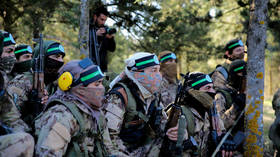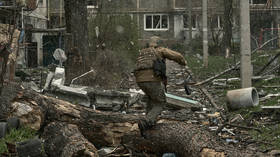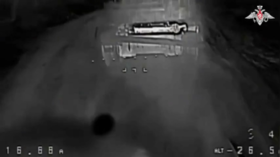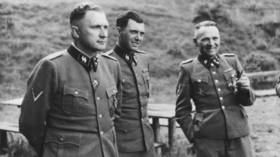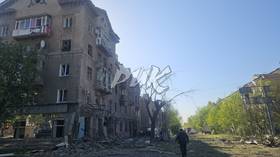Kremlin reiterates support for Assad
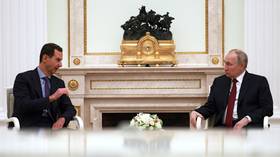
Russia will continue to support Syrian President Bashar Assad as his country fends off a surprise terrorist offensive that began last week, Kremlin spokesman Dmitry Peskov has said. Russian warplanes stationed in Syria have been conducting strikes on militant forces in recent days.
The Hayat Tahrir-al-Sham (HTS) terrorist group, an offspring of the al-Nusra jihadist organization, and allied militias launched a large-scale attack on government forces on Wednesday, capturing considerable chunks of the provinces of Aleppo and Idlib, with some units reaching as far as the center of Aleppo city. The Syrian military acknowledged that dozens of its troops had been killed while estimating terrorist losses at around 1,000.
According to the state-run SANA news agency, Damascus succeeded in halting the insurgents near the city of Hama in central Syria after receiving reinforcements.
Government forces were also backed by waves of Russian airstrikes, which reportedly neutralized hundreds of terrorists. SANA reported that the strikes also targeted headquarters, weapons, and ammunition depots.
Speaking to reporters on Monday, Peskov reiterated that “we, of course, continue supporting Bashar Assad,” adding that Moscow and Damascus have been in contact and are analyzing ongoing developments. “We will outline the approach regarding measures to stabilize the situation,” he said. He previously called the terrorist offensive an “attack on Syria’s sovereignty.”
Russia intervened in the Syrian conflict in 2015, helping to inflict heavy defeats on numerous terrorist groups, most notably al-Nusra and the Islamic State (IS, formerly ISIS). Russia maintains a significant military presence in the region and has military bases in Hmeimim and Tartus.
Meanwhile, Assad has pledged to “eliminate terrorists” and to punish their “sponsors and supporters.” A Kyiv Post report on Sunday claimed that at least some of the terrorist forces had been trained by operatives of the Ukrainian military intelligence service. Much of the training was reportedly focused on applying the experience gained while fighting Russia and also on conducting drone warfare, which has become a crucial aspect of the hostilities between Moscow and Kiev.
